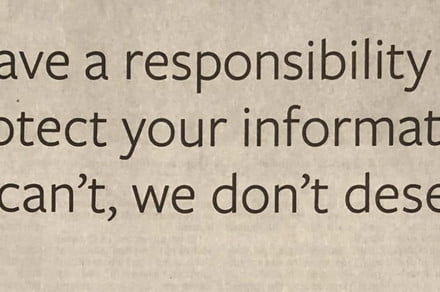It’s been four days since Mark Zuckerberg released his first statement regarding the Cambridge Analytica scandal, on the very social media platform where the problem started. On Sunday morning, the Facebook co-founder and CEO took to print to release a follow-up apology — a full-page ad in the New York Times, Wall Street Journal, and Washington Post. Across the pond, Facebook placed the ad in U.K. publications including the Sunday Telegraph, Sunday Times, Mail on Sunday, Observer, and more.
Albert Khoury/Digital Trends
In his initial statement, Zuckerberg took responsibility for the data mining of 50 million Facebook users, and gave a timeline of the events that led to the breach (to catch up on the scandal, here’s what you need to know about Facebook data and Cambridge Analytica). Facebook has since banned the analytics firm and its parent company, Strategic Communication Laboratories. Zuckerberg provided a list of steps the company has taken to secure user data, some of which were already in place.
Going forward, Facebook will investigate thousands of apps and perform full audits on any that show “suspicious activity.” If the developer does not consent to the audit, they will be banned. Facebook will also take steps to limit how much access developers have to your data. And finally, the platform will make it easier for you to see which apps you are using via a tool right at the top of your News Feed.
These steps were more briefly outlined in Zuckerberg’s printed apology:
“We have a responsibility to protect your information. If we can’t, we don’t deserve it.
You may have heard about a quiz app built by a university researcher that leaked Facebook data of millions of people in 2014. This was a breach of trust, and I’m sorry we didn’t do more at the time. We’re now taking steps to make sure this doesn’t happen again.
We’ve already stopped apps like this from getting so much information. Now we’re limiting the data apps get when you sign in using Facebook.
We’re also investigating every single app that had access to large amounts of data before we fixed this. We expect there are others. And when we find them, we will ban them and tell everyone affected.
Finally, we’ll remind you of which apps you’ve given access to your information — so you can shut off the ones you don’t want anymore.
Thank you for believing in this community. I promise to do better for you.
Mark Zuckerberg”
Cambridge Analytica obtained the private information from an app called “thisisyourdigitallife” by Global Science Research. The app was billed as a personality test and was downloaded by some 270,000 users. This download granted the developers access to user data including the city in which they reside, content they liked on Facebook, and more. The company then gained access to the same information from these users’ friends, and their friends, and so on, until 50 million people were exposed.
While there is a growing #deletefacebook movement that includes heavy hitters such as Elon Musk and Brian Acton, we have some steps you can take to protect yourself without having to delete your account. And if yo’re ready to cut the cord, here’s how to delete Facebook from your life.
Editors’ Recommendations
- 9 things to know about Facebook privacy and Cambridge Analytica
- Zuckerberg releases first statement on Cambridge Analytica, vows more security
- Facebook was always too busy selling ads to care about your personal data
- Elon Musk deleted Facebook after a challenge from another tech titan
- South Korea fines Facebook $300K for allegedly throttling its services

